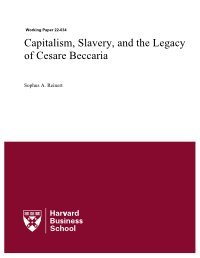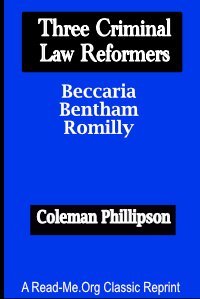From Wikipedia: “Beccaria was born in Milan on 15 March 1738 to the Marchese Gian Beccaria Bonesana, an aristocrat of moderate standing from the Austrian Habsburg Empire.[7] Beccaria received his early education in the Jesuit college at Parma. Subsequently, he graduated in law from the University of Pavia in 1758. At first he showed a great aptitude for mathematics, but studying Montesquieu (1689–1755) redirected his attention towards economics. In 1762 his first publication, a tract on the disorder of the currency in the Milanese states, included a proposal for its remedy.[8]
In his mid-twenties, Beccaria became close friends with Pietro and Alessandro Verri, two brothers who with a number of other young men from the Milan aristocracy, formed a literary society named "L'Accademia dei pugni" (the Academy of Fists), a playful name which made fun of the stuffy academies that proliferated in Italy and also hinted that relaxed conversations which took place in there sometimes ended in affrays. Much of its discussion focused on reforming the criminal justice system. Through this group Beccaria became acquainted with French and British political philosophers, such as Diderot, Helvétius, Montesquieu, and Hume. He was particularly influenced by Helvétius.[9]”
However, although his works are extensive, made clear in this collection of his life’s work, available this collection, Beccaria is most famous for his Treatise On Crimes and Punishments, its several versions appearing in Volume I of his collected works DELLE OPERE DI CESARE BECCARIA (The Works of Cesare Beccaria).










